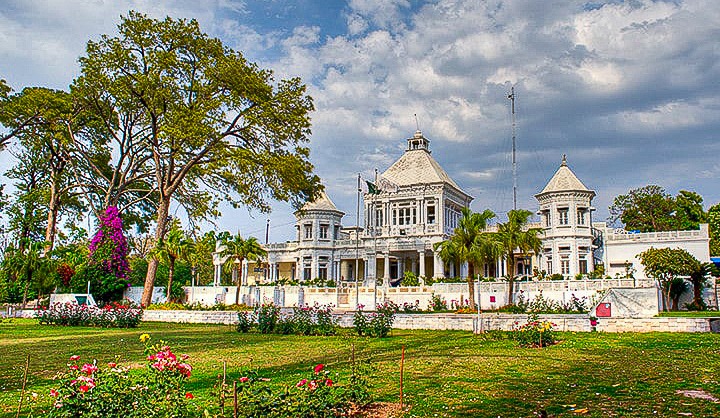RAWALPINDI, :The Fatima Jinnah Women University (FJWU) students’ delegation have urged the Deputy Commissioner Jhelum to preserve ancient cultural symbols of ponds and Banyan trees facing existential threat due to rising urbanisation and infrastructure expansion.
The students (BS-VIII and BS-IV) of the Department of Anthropology had an educational trip to Jindi Forest (Lehri) and Rohtas Fort (Dina), Jehlum for the courses “Anthropology of Arts and Aesthetics” and “Culture, Biodiversity and Climate Change” with their respective instructors, Dr. Shafia Azam and Dr. Syed Mehmood Nasir (Visiting Faculty, Department of Anthropology, FJWU and Former IG Forest).
The Deputy Commissioner of Jehlum, Captain Retired Samiullah Farooq, as well as District Forest Officer, Sudhir Mughal warmly welcomed and hosted the faculty and students of the Department of Anthropology, FJWU. The Divisional Forest Officer (DFO) Jhelum gave a briefing about the forest and sub-divisional officer (SDO) Archaeology gave a briefing about the history of the Rohtas Fort. The students volunteered to clean the track in the forest and faculty planted a plant in the Fort area.
Talking to APP, Dr Syed Mehmood Nasir said that the Peepal ( Ficus religiosa ) is an Indian anthropological cultural symbol particularly found in the Potohar as Al-Beruni describes it in detail in his book Kitab Ul Hind ponds with Ficus religiosa and other Ficus species & some temples that were part of hindu architecture.
In the mid 80s then secretary forests Ch Ashraf launched a development project titled “restoration of historical ponds in Potohar”, he added. He said one of the undeclared objectives was to save these ponds from encroachments in an era when there wasn’t archeological department in districts.
“Over time GT road expansion was resisted by the Rawalpindi Forest Circle and it was agreed with NHA to change some road alignments to save old Ficus trees. However, these saved trees gradually died over the years mainly because that the adjoining ponds disappeared and now you can see many plazas.
Ficus has a habit of having more adventitious roots instead of a tap root that spread horizontally. Along GT road expansion the trees had no space to spread due to metalled road surface leaving no room for horizontal root spread. Over the decades ponds disappear so do the cultural symbol the Ficus trees,” he said.
During those days, he said there was signage by archeology department at Kamra GT road saying this site has dug bricklined well constructed by Sher Shah Suri that served the caravans traveling from Kabul to Delhi. One cannot see that signboard any more in district Attock, he regretted.



Comments are closed.